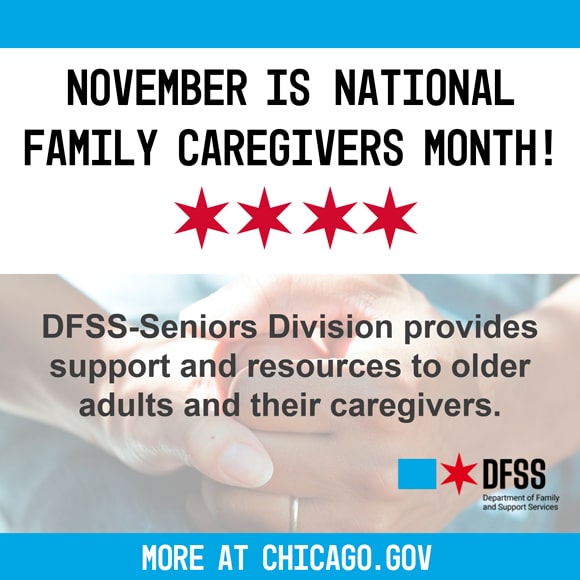Above photo Barbara Creed. Courtesy of Northwestern Memorial Hospital
Barbara Creed walked into Northwestern Memorial Hospital on April 29, 2020, expecting a three-day stay for a minor surgical procedure.
Thirty-five years prior, she was diagnosed with progressive scleroderma, an autoimmune disease that can damage the lungs; now, she was on the waiting list for a transplant.
Two days into her stay, she got the call — a set of donor lungs was ready. Over the course of the next two weeks, she underwent a double lung transplant, woke up from surgery with a tube down her throat, and spent days in the intensive care unit (ICU).
Creed yearned for the hand of a loved one. And yet, the closest she could get was her phone screen. She went 16 days without seeing her husband — the longest they have been apart in their 47 years of marriage. And it was all due to Covid-19 shutdowns.
Isolation, depression, and disorientation
In accordance with state orders and recommendations from the Centers for Disease Control and Prevention, hospitals across the country began enforcing visitation restrictions in March 2020. While policies have shifted throughout the pandemic, the majority of intensive care units and inpatient facilities initially limited visitors, only making exceptions for dire circumstances such as end-of-life care.
While hospital visitor restrictions have softened since last year, constraints are still in place. Many hospitals in the Chicago area are allowing only one to two visitors per Covid-negative patient, during predetermined hours. Covid-positive patients are still not permitted visitors, and in most cases, visitors cannot spend the night at the hospital.
While the goal of these hospital visitor restrictions is to minimize contagion, it’s possible that, in some cases, they are actually making patients, families, and providers sicker.
For Creed, a retired music teacher and mother of three from Oak Park, being separated from her family and friends was one of the most difficult parts of being hospitalized.
“Outside of the nurses and doctors stopping in, I was really on my own,” she says. “It was a little disturbing, a wash of loneliness, and just feeling a little sorry for myself. I was sitting there thinking about whether I’d ever be able to sing again … and just longing for my children, my husband, the people who I cared about the most to be able to come and see me.”
For most people in the hospital, familiar faces bring a sense of solace, safety, and human touch that tangibly improves their emotional wellbeing. Research has shown that hospital visits from loved ones lead to decreased rates of ICU delirium and anxiety.
Hence, the loss of these visits often results in increased issues. One 2021 meta-analysis in the International Journal of Nursing Studies showed measurable increases in loneliness, depression, and agitation in nursing home residents with visitor restrictions.
It is difficult to prove a causal relationship between the two, but hospital visitor restrictions undoubtedly correlate to increased rates of delirium, says Sara Mirza, MD, a critical care physician at Rush University Medical Center in Chicago.
In an already isolating pandemic, where faces are masked and social circles are small, these mental ramifications are compounded.
“It already is a virus that’s predisposing [hospitalized people] to ICU delirium and brain fog,” Mirza says. “Then you add on the lack of familiarity, the lack of comfort zone. A hundred percent, it does add to the delirium aspect of things.”
More than a sense of comfort
Hospital visitors offer more than comfort. They often act as an important intermediary between individuals and their doctors. When family members are restricted to virtual visits, some conversations are tougher to have.
“[Hospital visitor restrictions] are affecting every aspect of patient care dramatically. The healing process doesn’t happen in isolation,” says Ben Singer, MD, a critical care physician at Northwestern Memorial Hospital in Chicago.
“Part of the thrill and privilege of being an ICU doctor is how quickly we are able to form really intense therapeutic relationships with patients’ families,” Singer says. “Within a matter of hours, we’re having quite literally life-and-death conversations. That’s much harder to do over the phone or over an iPad.”
In many cases, visitors are the ones advocating for their loved ones’ care. They traverse language barriers, bring home-cooked food, and spot inconsistencies.
To Mirza, losing visitors meant losing her “liaisons of care.”
“When taking care of patients from a different language or different cultural background, their family members have always been there in the ICU,” Mirza says. “If [patients] needed someone, [visitors] were there 24/7. So they had the support, and we had the support.”
When instructing individuals to begin a treatment regimen, Mirza often involves family members and loved ones to ensure understanding.
“I’m teaching the family member to keep encouraging [the patient], and then they take over. They are an extension of the care that I need to be delivered.”
The effects of hospital visitor restrictions
A study published in the Patient Experience Journal in 2021 showed a 104% increase in both in-hospital falls and postoperative sepsis rates in hospitals with no-visitation policies compared to those that allowed open or limited visitation. The study authors postulate that the absence of a care partner and extra set of eyes was likely a contributor to the higher rate of falls and sepsis.
The study’s lead author, Geoffrey Silvera, an assistant professor of health services administration at the University of Alabama at Birmingham, says visitors play a crucial role in advocating for their loved ones and communicating with providers.
“Having someone to question you constantly — why you’re doing it this way, why something has changed — it keeps you on your toes in terms of performance and doing things consistently and correctly,” he says.
Hospital visitor restrictions have affected not only the mental health of patients, but also the mental health of the providers who care for them.
With loved ones remote, providers have had to update family members and answer their questions multiple times a day, especially for Covid-19 patients who can’t have visitors.
Sol Abreu-Sosa, MD, a physiatrist at Rush who works with many recovering ICU patients, had to strike a balance between caring for her patients and catering to their loved ones, especially during the brunt of the pandemic.
“From a family perspective, I can tell you that they felt lost and left in the dark because they could not see or witness what was happening to their loved ones. The only coping mechanism that ensured them a connection to their loved ones was to request a call on a daily basis — and at times more than once a day — for a medical update,” she says.
It’s been stressful for providers, she says. “To keep up with multiple phone calls a day while at the same time providing medical care to at least 14 or 15 patients can be mentally, physically, and emotionally exhausting,” she says. Adding to the strain was the need for doctors and nurses to suddenly provide tech advice, psychological assistance, and case management in addition to medical care, she says.
Many medical centers, including Northwestern Memorial Hospital, created designated communications teams to help with the heightened workload. However, healthcare providers still shared the burden.
Northwestern ICU nurse practitioner, Lindsey Gradone, DNP, has experienced the additional responsibility firsthand. She believes the hours spent calling families and describing the patients’ status has contributed to nurses’ mental fatigue, especially during the early days of the pandemic.
“It took a lot more time than usual,” she says. “I think it also contributed to a lot of the emotional labor and emotional burnout that we all have from it.”
On top of this, Gradone says many providers continue to feel an increased need to support patients emotionally in the absence of their loved ones, acting almost as a second family — a feat that is especially challenging with critically ill and end-of-life patients.
The mental toll from this extra level of care now presents itself in the form of national nursing staff shortages, in part due to the mental and physical burdens that the pandemic incited.
“It’s not like we’re short on ventilators now. We’re running out of staff. We are burnt out, and we cannot handle this anymore,” Mirza says.
Silver linings and solutions
Nevertheless, despite the challenges, visitor limitations also have brought some silver linings — namely the increase in telehealth and telecommunication. As smartphones and tablets became the accepted mode of communication for many patients and families, both parties quickly became adept at virtual communication. This Zoom boom is continuing, both for Covid-positive patients as well as for general telehealth appointments.
Geoffrey Hall, chief executive officer of the Cleveland Clinic’s Edwin Shaw Rehabilitation Hospital, agrees that the uptick in reliance on telehealth could transform the future of healthcare.
“It creates more access to care, and it creates more ease and convenience of getting care where you’re getting the medical professional decision-making, without the stress of transportation, crowded waiting rooms, or worrying that you’re going to get something else from an emergency room,” he says.
As the pandemic continues, Silvera emphasizes that, regardless of policies and politics, patients and the people who support them should always be at the root of all hospital decisions. Hospital visitation is an important part of supporting patients.
“Patients’ experiences matter. And they have ramifications, so you can’t get to a decision, despite a raging pandemic, without thinking about what it’s going to mean for the patients who you do have.”
Creed wishes she could have had visitors when she was in the hospital. When she made it back home after her lung transplant, she was greeted with a celebration full of balloons and decorations. After not being able to see her for more than two weeks, her friends and family were almost as relieved as she was.
“I hope that this pandemic will be over soon,” Creed says. “I think it is a very unnatural way to be in the hospital, because we depend on our families so much for emotional support, physical health, just for everything.”

Anokhi Saklecha is a medical student and graduate journalism student at Northwestern University’s Medill School of Journalism.












